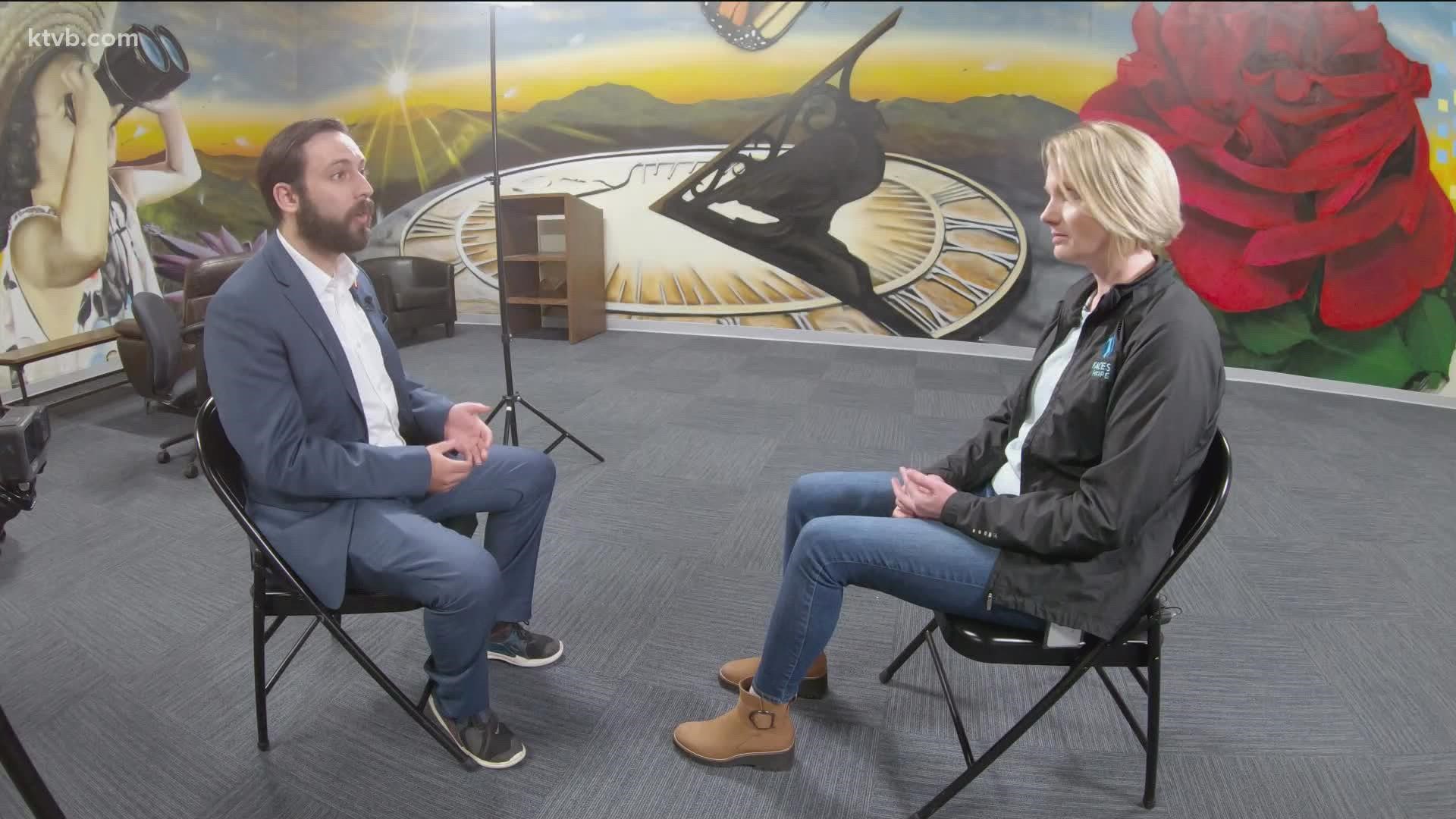BOISE, Idaho — Headlines this week about the Aaron von Ehlinger trial can be a trigger for survivors of sexual violence. It’s a reminder, there is help and a community of resources for survivors.
One of those resources is Faces of Hope Victim Center in Boise. They are an organization designed to help victims as a one-stop triage facility where trauma-informed specialists from 14 public and private community organizations collaborate to get victims any support or resources they need.
FACES Executive Director, Paige Dinger, said the organization provides no-cost services to people who have dealt with domestic violence, sexual assault, elder abuse, child abuse, sex trafficking and stalking.
“Through one door, we have partners in the facility, but we also have our team members that are going to help you get all of the services, access all of the services that you need," Dinger said. "So, we're going to take care of your emotional, medical, legal, basic needs, educational needs -- all of that -- so you don't have to navigate through the community. It's right here and under one roof."
When many people go to a place like FACES for help, they typically have never dealt with something like sexual assault. It's terrible trauma that they're dealing with, but a lot of people have never gone through it before.
Dinger says they work hard to keep clients comfortable and informed about the process.
“The first thing we want everybody to feel is that they are believed, because a lot of times this is maybe a secret that they've kept or they've told somebody. And maybe the first question is, 'well, why didn't you just leave?' Relationships are complicated. Life is complicated and so when somebody is coming to faces, you know, they're scared," Dinger said. "They're not sure who they can trust. They've been looking over their shoulder to make sure that they're not being followed. So, to be able to come hearing the click of our door, knowing that you're safe and knowing that there's partners here that can help you, that gives people a lot of hope."
Dinger said when people come to Faces of Hope Victim Center, they can take a deep breath and know they are safe at the organization.
Victims of sexual violence may watch the trial this week and how difficult it is for a survivor to recount an event. With that said, FACES wants to get the message out: they are there for all victims, and have a staff prepared to help survivors in ways best for them.
“First off, it takes a lot of courage to come and speak out about your abuse," Dinger said. "So, here at FACES I think the beauty is, number one, we're going to make sure that emotion early and mentally we're supporting you and we're believing."
According to Dinger, FACES has crisis counselors and gives the victim the option to talk when they are comfortable with talking. FACES' counselors are also trauma trained to maximize their emotional support.
"Every story is unique. So you're coming to FACES and you're scared and your story is going to be different from everybody else's. However, trauma looks very similar with the victims that come to FACES," Dinger said. "So, the first thing I would say is, if you're coming to FACES, you're going to be believed. You're going to get the support that you need. Most of the time when people come to FACES, they'll say, 'oh my goodness, I wish that I'd known about this place earlier.'
"We have people who have been dealing with trauma with some form of abuse for years because they were so scared to come and ask for help … When you have to come to FACES and admit that you're dealing with abuse, it's hard. To have people come and give you complete support, that's really important here at FACES and the people who are here are trained and they want to just help. We're not going to make you do anything that you're not ready for. We want to make sure that you have the control that maybe you've been missing in this -- in the abuse that you've been dealing with."
Jane Doe left the stand in the middle of testimony this week saying, "I can't do this," highlighting how difficult and traumatizing recounting an event is. Dinger says she thinks the legal system has made progress in handling traumatic accounts, but there is still plenty of work to do.
“I think we're coming a long way. I think that being trauma informed is something that our law enforcement is looking into and they want training our attorneys, our prosecutors are wanting the training to be more trauma informed. It's no longer okay to say, you know, 'buck up. It's okay. Like just get through this.' We want we want justice for offenders, but we also need to make sure that when our victims are coming to testify or whatever they're doing, that they are feeling safe and believed," Dinger said. "I think we have a long way to go, but I do feel like the court system, they know that they need to make improvement. I think they're working on that."
Join 'The 208' conversation:
- Text us at (208) 321-5614
- E-mail us at the208@ktvb.com
- Join our The 208 Facebook group: https://www.facebook.com/groups/the208KTVB/
- Follow us on Twitter: @the208KTVB or tweet #the208 and #SoIdaho
- Follow us on Instagram: @the208KTVB
- Bookmark our landing page: /the-208
- Still reading this list? We're on YouTube, too:

